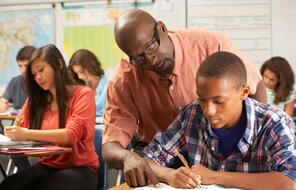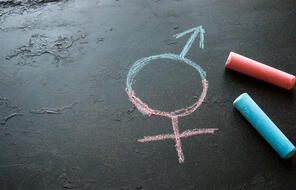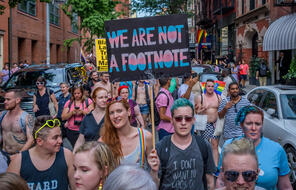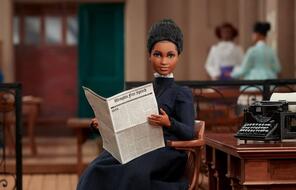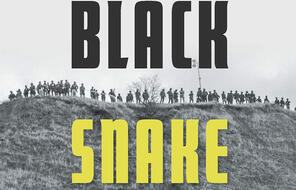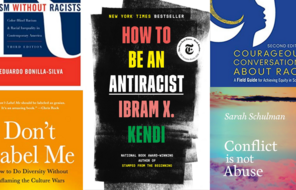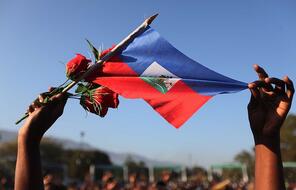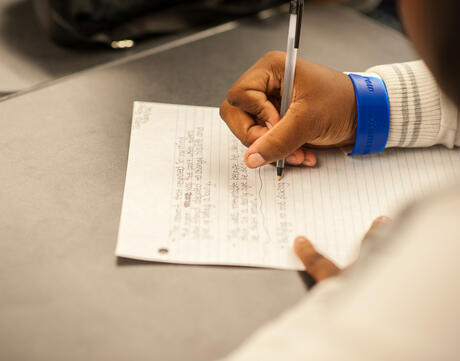
Celebrating Our Communities, Languages and Cultures on World Poetry Day (UK)
Poetry is an important medium for cultural expression. It allows the speaker to articulate and express their identity, celebrate linguistic traditions and enables the artist to act as spokesperson for their cultural group. This importance was recognised by UNESCO, which first established World Poetry Day in 1999 to preserve linguistic diversity and uplift endangered languages.
Across time, poetry has been used by varied groups for different purposes. For the LGBTQ+ community, up until the twentieth century poetry was a way to implicitly express, through symbolic language, desire that could not be expressed overtly. Through homoerotic subtext, taboo feelings could be communicated safely, or in other cases sexual identity might be signalled by sharing Queer poetry such as of the ancient Greek lesbian poet Sappho.
For poets of Afro-Caribbean descent, in a tradition dating back to slavery, poetry has existed as a form of resistance - originating as a means to share information and political ideas within a heavily surveilled community with deep oral traditions. This tradition remains today as Afro-Caribbean poets use the medium to explore the impact on identity and continued legacies and of the histories of slavery and colonisation.
Poetry can also be a means to resurrect dying traditions and native languages. The enforcement of standard English in Scotland following the Union endangered its native languages, and in recent decades Scottish poets have sought to resurrect them by weaving Scots and Gaelic into their verse.
This World Poetry Day we are sharing the works of poets who use poetry to represent their communities, promote their cultures and respond to current events: Hanan Issa, the National Poet of Wales, Trudy Howson, the LGBTQ+ Poet Laureate, and Kathleen Jamie, the Makar or National Poet for Scotland. The following poems can help students explore and connect with issues of identity, group membership, and belonging, as well as provide models and inspiration for how they communicate their own cultural identities.
Hanan Issa
Hanan Issa was announced as the National Poet of Wales in July 2022 and she is the first Muslim national poet. The position was first established in 2005 to promote Welsh creativity, languages and traditions outside its borders and to bring poetry to new audiences. Her work frequently explores her Welsh and Iraqi heritage, and celebrates feminist action and independence. Below is a poem Issa shared last year on the topic of the cost of living crisis.
Global Warming
by Hanan Issa
When the hearth heat of summer leaves,
the cold creeps in, all unwelcome kisses.
So get the blankets, get the cardies,
start turning up the dial
-no that’s too much!
Light a candle not a lamp, my love.
Savour the taste of tomatoes and salty chips.
Even the hum of hairdryers.
For when the heaters shiver alive and that sallow
golden amber dilates pupils swollen with £ signs,
this tired world fevers watching its people freeze.
Ah Ceridwen, gather the neighbours around al misha’al.
Come, we have saved you a space near yr aelwyd.
Sing us songs of little sosbans and hope that we never find:
“When you see me, cry” scratched into a wall somewhere.
Trudy Howson
Trudy Howson was announced as the UK’s inaugural LGBT Poet Laureate in 2016, a role that was established to promote the use of poetry as a catalyst for social and political change. Howson frequently makes impromptu performances at LGBTQ+ rights demonstrations and pens poems to respond to significant anniversaries and observances in the LGBTQ+ calendar. Below is a poem written by Howson to mark the Launch of National Hate Crime Awareness Week in 2022.
Launch of National Hate Crime Awareness Week - 2022
by Trudy Howson
In this week across our nation,
We stand united in our call.
“There is no place for hatred.”
Because hatred hurts us all.
Whatever your ability or religion.
Sexuality, colour of skin.
This battle against hate crime,
Is one we have to win.
Let’s educate the ignorant.
Dispel prejudice and fear.
Promote that Love is a human right,
Be open and be clear.
We can make a difference,
By what we do and say,
Against the intolerance and injustice,
Some people suffer every day.
It’s okay to be different,
Let’s honour who we are.
Make our world a safer place,
For all of us, near and far.
Kathleen Jamie
Kathleen Jamie was announced the Makar, or the National Poet for Scotland, in August 2021, replacing the acclaimed Jackie Kay after a three-year term. Her work is a celebration of Scottish culture, brimming with vivid landscape descriptions and frequently dealing with the themes of gender and history. Her most recent project as the Makar uses lines submitted by the people of Scotland to create collective poems and features both the Scots and Gaelic languages.
Our Waking Breath: A poem-letter from Scotland to Ukraine
by The People of Scotland, curated by Makar Kathleen Jamie
From the calm and stillness of a Scottish morning,
as life becomes uncertain and strange
we send you a waking breath.
We are here, sending you strength
carried on the west wind,
sending mother love
like the green surge from tree to leaf,
love like the miracle
of a new-born babe.
We share your hert-sairs, the same doul,
as we hold tight
the chubby wee hands of our grandbairns.
Like you we love birdsong,
yellow sunflowers, the dreaming blue sky,
sunbeams, moonlight and stars,
disco music, dancing to the blasting tunes
football fixtures, dragons
foraging for gems in our favourite books,
the crows at dusk who rise,
caw and caw, making music together
a sky, a path, freedom.
*
In all the darkness, brave ones
in all your grief, we know
your faces will lift again.
In all the fear, we know
yellow wheat will ripen under blue skies.
We share your farewell kiss
for your wife and children,
as you remain, your farewell caress
for your frightened cat, bewildered dog.
We know your need simply to breathe
amongst leaves and flowers,
ochre earth, forests of pines.
Tha sinn uile còmhla fon aon ghealaich is na h-aon reultan
(We are all together under the same moon and the same stars),
please know we’ll share this street,
luve wir neebours as wirsels,
offer succour an shelter frae strife.
Tha sinn còmhla ribh gach ceum, ar taighean ’s cridheachan fosgailte.
(We are with you every step, our houses and hearts open.)
We share the words of Shevchenko and Burns:
‘So here’s a haun, my trusty fiere’
‘Then rise ye up, and break your heavy chains.’
*
Dear people of Ukraine,
May your sunflower seeds blossom
into life, tall and unshakable
for the wee ones, the young yins, the bairns.
May they come again:
quiet evenings, tea, lazy chatter, love
lorgaidh aodainn neòinein-ghrèine an solas,
tha dòchas ann fiù ’s an dorchadas
(may the faces of sunflowers find the light/
because there is hope even in darkness).
For now, the world watches
fhad ’s a leigeas eòin-iarrainn sìol an gràin
(as iron birds scatter the seed of their hatred),
The world watches
you, bonny fechters –
your resistance and defiance is your future.
Spring is here. Dear people of Ukraine,
your courage humbles us. Haud fast. Haud fast.
- And send them homewards, tae think again.



